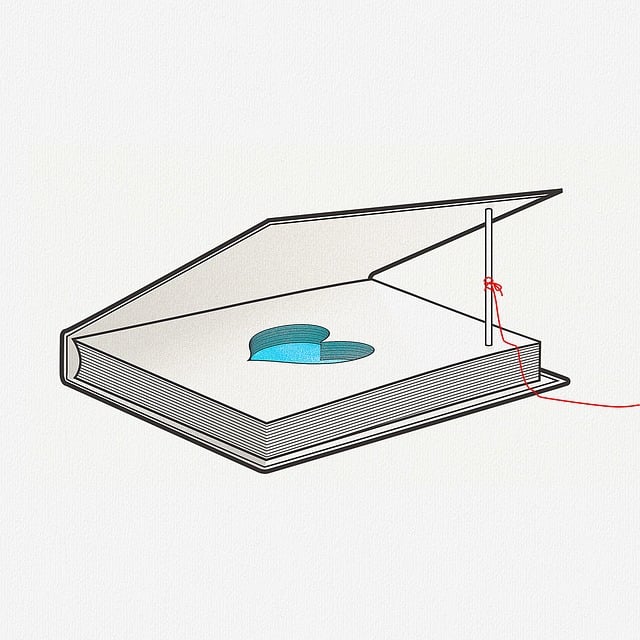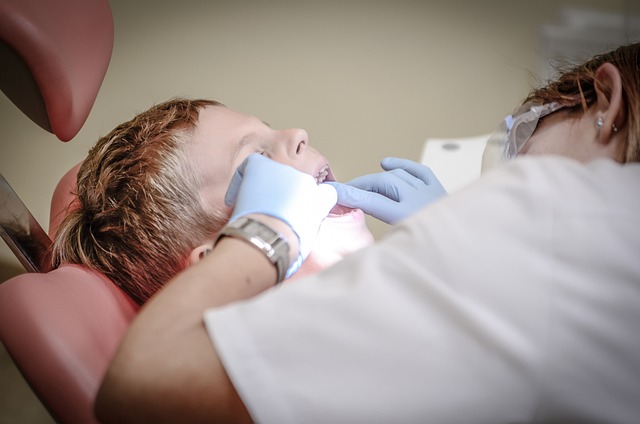Smoking with Your Retainer In: Dental Risks
Smoking – a habit that poses a myriad of health risks, from lung cancer to heart disease. But what about the impact on your dental health? Specifically, what happens when you light up a cigarette while wearing your trusty retainer? In this article, we delve into the lesser-known consequences of smoking with your retainer in. With a confident and knowledgeable tone, we will explore the dental risks that arise, shedding light on a topic that deserves attention. So, if you’re a smoker or someone who wears a retainer, read on to discover the potential hazards that may be lurking in the shadows of your daily routine.
1. The Hidden Dental Risks of Smoking with Your Retainer In
Smoking is a harmful habit that poses several risks to your overall health, including detrimental effects on your dental health. However, smoking with your retainer in can further exacerbate these risks, leading to potential complications. It is crucial to be aware of these hidden dental risks and take necessary precautions to maintain optimal oral health.
1. Stained Teeth: Smoking while wearing your retainer can cause severe staining on your teeth. The nicotine and tar present in cigarettes can easily adhere to the retainer’s surface, resulting in unsightly yellow or brown stains. Regular cleaning and proper maintenance of your retainer are essential to prevent staining and maintain a bright smile.
2. Bad Breath: Smoking not only leaves an unpleasant odor in your mouth but can also intensify bad breath when combined with a retainer. The combination of tobacco smoke and the retainer’s material can create an environment conducive to bacterial growth, leading to persistent bad breath. Maintaining good oral hygiene, including regular brushing and flossing, can help combat this issue and keep your breath fresh.

2. Understanding the Potential Consequences: Smoking and Retainer Use
When it comes to maintaining a healthy smile and ensuring the longevity of your orthodontic treatment, it’s crucial to understand the potential consequences of smoking and its impact on retainer use. Here are some important points to consider:
- Increased risk of oral health problems: Smoking has been linked to a higher risk of gum disease, tooth discoloration, and bad breath. These oral health issues can compromise the effectiveness of your retainer and hinder the overall success of your orthodontic treatment.
- Delayed healing process: Smoking can hinder the healing process after orthodontic procedures, such as tooth extraction or jaw surgery. This can lead to prolonged discomfort and delay the progress of your treatment. It is important to follow your orthodontist’s instructions for retainer use to ensure proper healing.
- Staining and damage to retainers: Smoking can cause stubborn stains on your teeth, which can transfer to your retainer, making it less aesthetically appealing. Additionally, the heat and chemicals from smoking can weaken the structure of your retainer, leading to potential damage or breakage.
By understanding the potential consequences of smoking and its impact on retainer use, you can make informed decisions to protect your oral health and optimize the outcomes of your orthodontic treatment. It is advisable to consult with your orthodontist for personalized advice and support in maintaining a healthy smile.

3. Dental Health Complications Caused by Smoking with a Retainer
Smoking not only poses a significant risk to your overall health, but it can also lead to various dental health complications, especially when combined with wearing a retainer. Here are some of the potential issues you may face:
- Increased risk of gum disease: Smoking weakens the immune system, making it harder for your body to fight off bacteria and infections. This puts you at a higher risk of developing gum disease, which can lead to gum recession, tooth loss, and bad breath.
- Delayed healing: Nicotine in cigarettes constricts blood vessels, reducing the blood flow to your mouth. This can slow down the healing process after orthodontic procedures, such as getting a retainer. It may take longer for any sores or wounds to heal, increasing the risk of infection.
Furthermore, smoking can stain your teeth, cause bad breath, and impair taste and smell. When combined with wearing a retainer, the negative effects of smoking on your dental health can be exacerbated. It is crucial to understand the potential complications and take necessary steps to prioritize your oral hygiene and overall well-being.

4. The Impact of Smoking on Retainer Functionality and Effectiveness
Smoking has a significant impact on the functionality and effectiveness of retainers. Here are some key points to consider:
1. Discoloration: Smoking tobacco products can cause retainers to become yellow or stained over time. This discoloration not only affects the appearance of the retainer but can also make it less hygienic.
2. Reduced Retention: The chemicals in cigarettes can weaken the materials used in retainers, such as plastic or metal wires. This can lead to a decrease in the retainer’s ability to hold teeth in their corrected positions, resulting in less effective treatment outcomes.
3. Increased Breakage: Smoking can contribute to the increased breakage of retainers. The heat generated from smoking and the chemicals present in tobacco can cause the retainer to become more brittle and prone to fractures.
4. Impaired Oral Health: Smoking has detrimental effects on oral health, including gum disease and tooth decay. These oral health issues can compromise the effectiveness of retainers and may require additional dental treatment.
5. Unpleasant Odor and Taste: Smoking can leave a lingering smell and taste on retainers, making them less comfortable to wear and potentially affecting the wearer’s overall experience.

5. Unveiling the Long-Term Consequences: Smoking and Orthodontic Retainers
Smoking is a habit that can have detrimental effects on our overall health, but its impact on orthodontic retainers is often overlooked. While most people are aware of the immediate consequences of smoking, such as stained teeth and bad breath, it is important to understand the long-term effects as well.
Here are some of the long-term consequences of smoking on orthodontic retainers:
- Discoloration: Smoking can cause discoloration of the retainer, making it appear yellow or brown over time. This not only affects the aesthetic appeal of the retainer but also indicates the presence of harmful chemicals that can be transferred to the mouth.
- Build-up of plaque and bacteria: Smoking can lead to the build-up of plaque and bacteria on the retainer. This can not only compromise the effectiveness of the retainer but also increase the risk of gum disease and other oral health issues.
- Increased risk of cavities: The combination of smoking and orthodontic retainers can increase the risk of cavities. Smoking weakens the enamel, making it more susceptible to decay, while retainers can trap food particles and bacteria, creating an ideal environment for cavities to develop.
It is crucial for smokers who wear orthodontic retainers to be aware of these long-term consequences. By understanding the potential risks, individuals can take necessary precautions and make informed decisions regarding their oral health.
6. Safeguarding Your Dental Health: Why Smoking with a Retainer Is a Risky Choice
Dental health is of utmost importance, and it is crucial to be aware of the potential risks associated with certain habits. One such habit is smoking, which can have detrimental effects on your dental health. While smoking itself is harmful, smoking with a retainer poses an even greater risk. Here’s why:
1. Staining: Smoking is notorious for causing tooth discoloration and staining. When you smoke with a retainer, the tar and nicotine from the cigarettes can seep into the retainer material, resulting in unsightly stains. Not only will this affect the appearance of your retainer, but it can also transfer onto your teeth, making them appear yellow or brown.
2. Bad breath: Smoking already contributes to bad breath, or halitosis, due to the chemicals and particles that linger in the mouth. When combined with a retainer, the smell can become even more pronounced. The retainer acts as a breeding ground for bacteria, and the combination of smoke residue and bacteria can result in a persistent and unpleasant odor.
7. Breaking the Habit: Tips for Quitting Smoking and Preserving Your Dental Well-being
Smoking can have detrimental effects on your overall health, including your dental well-being. Quitting smoking is a challenging but essential step towards improving your oral health. Here are some tips to help you break the habit and preserve your dental well-being:
- Set a quit date: Choose a specific date to quit smoking and stick to it. Having a deadline can help you stay motivated and committed to your goal.
- Seek support: Reach out to friends, family, or support groups who can offer encouragement and guidance throughout your journey to quit smoking. Their support can make a significant difference in your success.
- Identify triggers: Pay attention to situations or emotions that trigger your smoking habit. By recognizing these triggers, you can develop strategies to avoid or manage them effectively.
- Create a smoke-free environment: Remove all smoking-related items from your surroundings, such as ashtrays or lighters. Keeping a smoke-free environment can help reduce the temptation to smoke.
Continuing with smoking can lead to various oral health problems, such as tooth discoloration, gum disease, bad breath, and even oral cancer. By quitting smoking, you not only improve your overall health but also preserve your dental well-being. Remember, breaking the habit is not easy, but with determination and support, you can successfully quit smoking and take care of your oral health.
Frequently Asked Questions
Q: Is it safe to smoke with a retainer in?
A: No, smoking with your retainer in poses dental risks that should be avoided.
Q: What are the potential risks associated with smoking while wearing a retainer?
A: Smoking with your retainer in can lead to discoloration, bad breath, increased bacterial growth, and potential damage to your teeth and orthodontic appliance.
Q: How does smoking affect the color of the retainer?
A: Smoking causes the retainer to become yellow or stained, compromising its appearance and cleanliness.
Q: Can smoking with a retainer cause bad breath?
A: Yes, smoking with a retainer can contribute to bad breath due to the combination of tobacco residue and bacteria that can accumulate on the retainer.
Q: Does smoking with a retainer increase the risk of bacterial growth?
A: Absolutely, smoking can create an environment conducive to bacterial growth, leading to an increased risk of oral infections and other dental issues.
Q: Can smoking damage teeth and the orthodontic appliance?
A: Yes, smoking can lead to tooth decay, gum disease, and even weaken the integrity of the retainer or other orthodontic appliances.
Q: Are there any alternatives for smokers who wear retainers?
A: It is highly recommended to temporarily remove the retainer before smoking to minimize the associated dental risks. However, it’s important to consult with your orthodontist for personalized advice.
Q: What steps can be taken to mitigate the dental risks for smokers with retainers?
A: Smokers should maintain a rigorous oral hygiene routine, including regular brushing, flossing, and using mouthwash. It is also crucial to attend scheduled dental visits to monitor the condition of both the teeth and the retainer.
Q: Are there any additional precautions smokers should take to protect their dental health?
A: Smokers should be aware that quitting smoking altogether is the most effective way to safeguard their dental health, in addition to the numerous other benefits for overall well-being.
Q: Can the damage caused by smoking with a retainer be reversed?
A: While some effects, such as discoloration, may be reversible through professional cleaning, other damage to teeth and orthodontic appliances may require more extensive dental treatments to rectify.
Q: What is the bottom line regarding smoking with a retainer in?
A: Smoking with a retainer in is not recommended due to the various dental risks involved. It is crucial to prioritize oral health by avoiding smoking or removing the retainer before smoking to maintain a healthy smile.
In Conclusion
In conclusion, smoking with your retainer in poses serious dental risks that should not be taken lightly. By understanding the potential consequences, you can make informed decisions regarding your oral health. Here are the key takeaways from this article:
1. Smoking with a retainer can lead to discoloration and staining of your teeth, which can be difficult to reverse and may require additional dental procedures.
2. The heat generated from smoking can warp or damage your retainer, compromising its effectiveness and potentially causing discomfort.
3. The chemicals present in cigarettes can increase the risk of gum disease and tooth decay, which can lead to long-term oral health problems.
4. Regularly cleaning your retainer and practicing good oral hygiene is essential to minimize the negative effects of smoking, but it is still not a foolproof solution.
5. Quitting smoking altogether is the best way to protect your dental health and overall well-being. Seek support from healthcare professionals or cessation programs if you need assistance.
Remember, your dental health is important and deserves your attention. By being aware of the risks associated with smoking while wearing your retainer and taking appropriate action, you can maintain a healthy smile for years to come.






